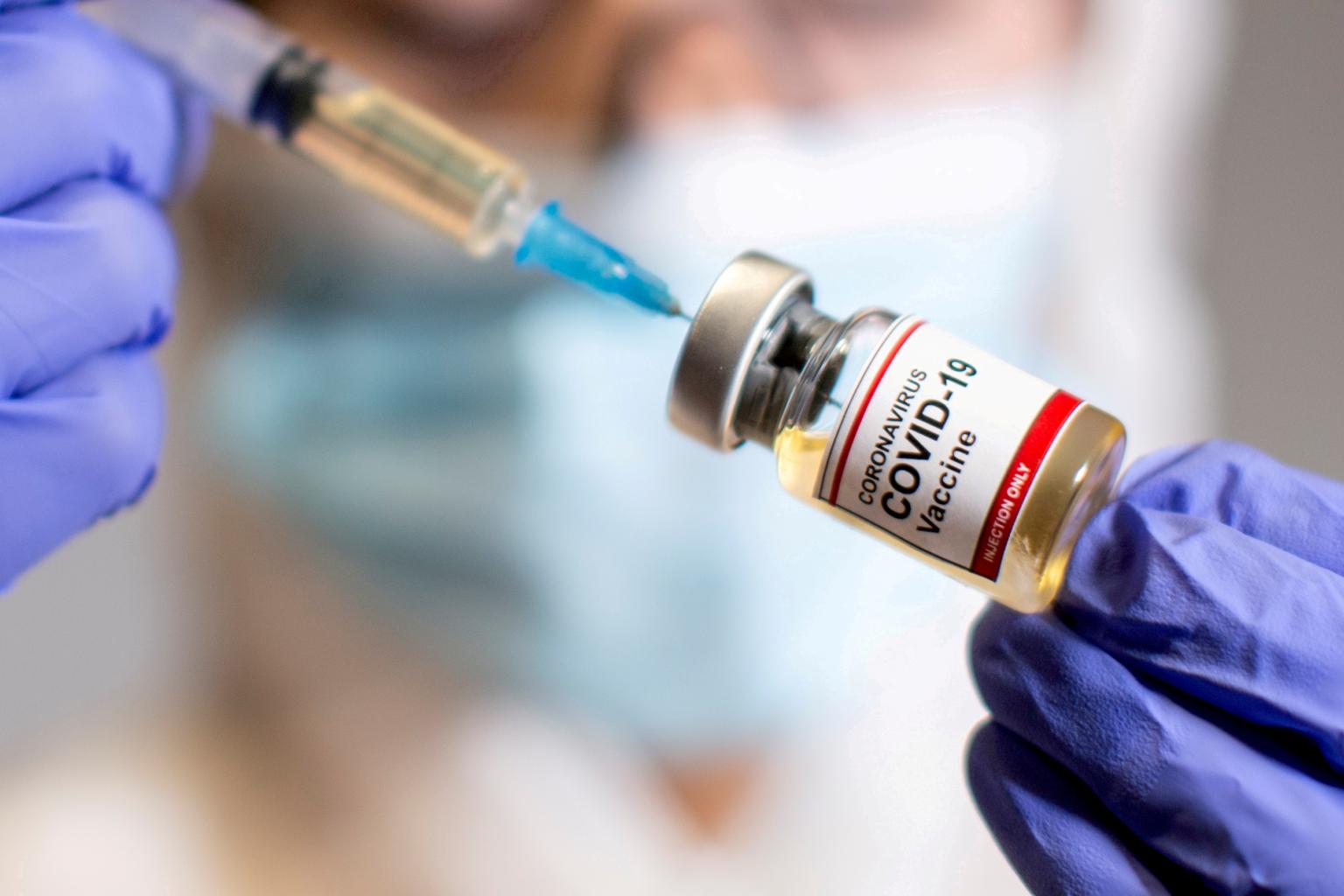Covid-19 vaccine acceptance rates high, but more needs to be done
Sign up now: Get ST's newsletters delivered to your inbox

About 68 per cent of respondents in Singapore said they would take an available vaccine that has been proven to be safe and effective.
PHOTO: REUTERS
Follow topic:
SINGAPORE - With Covid-19 vaccines beginning to be available and inoculation programmes starting up, surveys are indicating largely positive reactions and large numbers of people who want to be immunised in various countries. But researchers also warned that more needs to be done to halt the growing wave of vaccine hesitancy.
Nearly three-quarters in a survey covering 15 countries would get a vaccine for Covid-19, if it was available. But at 73 per cent, this was 4 percentage points lower than three months earlier, according to the survey published last month by market research firm Ipsos in partnership with the World Economic Forum.
In the survey, conducted between Oct 8 and 13 on more than 18,000 adults, 52 per cent said they would get vaccinated within three months of the vaccine becoming available to all.
Research published by the journal Nature in October also noted that 71.5 per cent of 13,426 survey respondents in 19 countries reported in June that "they would be very or somewhat likely to take a Covid-19 vaccine".
Pew Research Centre reported this month that 60 per cent of Americans in its survey said "they would definitely or probably get a vaccine for the coronavirus, if one were available today", up from 51 per cent in September. The survey was conducted on 12,648 US adults between Nov 18 and 29.
Discrepancies among different populations exist, depending on citizens' trust in government and income levels in the country, researchers said.
For example, acceptance tended to be higher in Asian nations such as China, South Korea and Singapore, researchers said in Nature.
About 68 per cent of respondents in Singapore said they would take an available vaccine that has been proven to be safe and effective. There was also a relatively high tendency towards acceptance in middle-income countries such as Brazil, India and South Africa, they added.
The findings on vaccine hesitancy come as countries around the world are preparing inoculation programmes.
Britain became, on Dec 9, the first Western country to start immunising its population. China started a limited-use programme of a Covid-19 vaccine developed by a state-owned firm in July. South Korea is likely to start widespread vaccination in the second half of next year.
Singapore has no intention of vaccinating its entire population for now, and Australia has ruled out mandatory immunisations.
Widespread campaigns to distribute Covid-19 vaccines in Africa will likely begin only in March next year, the Africa Centres for Disease Control and Prevention said last month.
While the rate of acceptance remains high, researchers warned about a rise in vaccine hesitancy as companies and countries appear to have cut short the usual process needed to come up with a safe and reliable vaccine, which can typically take up to 10 years.
The Ipsos survey highlighted the fall in the acceptance rate. It cited concerns about side effects and vaccines moving through clinical trials too fast, from respondents who would not get a vaccine when it is available.
Researchers of the Nature article said: "The accelerated pace of vaccine development has further heightened public anxieties and could compromise acceptance.
"The far-from-universal willingness to accept a Covid-19 vaccine is a cause for concern." They added: "Governments, public health officials and advocacy groups must be prepared to address hesitancy and build vaccine literacy."
They pointed out that anti-vaccination activists are already campaigning in multiple countries against the need for a vaccine.
They mentioned misinformation as another factor.
The New York Times reported on Nov 24 that South Korea had to work quickly to dispel misinformation that its flu vaccine programme was causing deaths among those who had been injected.
But Financial Times columnist Simon Kuper last month suggested focusing on anti-vaxxers' behaviour, instead of their talk.
He wrote: "Anti-vax talk is worrying. However, it is only talk."
He added: "Sharing conspiracy theories online is excitingly subversive, making people feel they have taken the 'red pill' and seen the truth. More telling, though, is their behaviour. In real life, when things get serious, almost everyone chooses vaccination."
For example, in France, which is the most vaccine-sceptical of 140 countries surveyed by the Wellcome Foundation in 2018, vaccination rates have been rising, with 98.6 per cent of babies born in early 2018 having received the "hexavalent" compulsory vaccine that protects against six illnesses, including hepatitis B and tetanus.
The Nature article said that "reporting one's willingness to get vaccinated might not necessarily be a good predictor of acceptance, as vaccine decisions are multifactorial and can change over time".
Quoting Professor K. Viswanath at Harvard University's School of Public Health, Mr Kuper pointed out that "even in the US, where parents can more easily refuse vaccinations, only about 7 per cent or fewer adamantly oppose them, depending on the vaccine".
The Financial Times article said: "This small group gets a disproportionate share of attention."

